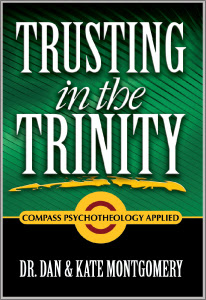As a psychologist I'm fascinated how deeply Jesus Christ knows us. This knowledge can be unnerving, though, since God's knowledge includes our thoughts and feelings, perceptions and sensations, and goals and dreams. No other person or no institution has this capability to instantaneously know what we are thinking and feeling as we think and feel it.
This could make me a little paranoid, to realize that God knows why I am typing this now. And how everything in my life has led to this sentence I am now constructing. Not only that, but God has foreknowledge of you coming to this site today and knows how you are interacting with it.
This is an extraordinary attribute of the living God -- the God of spirit and truth Jesus spoke about to the Samaritan woman at the well, when he revealed divine knowledge about her five husbands.
We wouldn't even know that God sees through us like we see through a windowpane, unless God revealed this to us in the Bible. But reveal it he does!
- "Immediately Jesus knew in his spirit that this was what they were thinking in their hearts" (Mk 2:8).
- "Nothing in all creation is hidden from God’s sight. Everything is uncovered and laid bare before the eyes of him to whom we must give account" (Heb 4:13).
- The Bible itself, inspired and illuminated by the Holy Spirit, also reveals this penetrating knowledge of people: "For the word of God is alive and active. Sharper than any double-edged sword, it penetrates even to dividing soul and spirit, joints and marrow; it judges the thoughts and attitudes of the heart" (Heb 4:12).
Why is this important? Because modern psychology shows that only in deepest confidence, like the confidentiality of a psychotherapy session, do people disclose their innermost thoughts, feelings, and motives.
Human beings have both the free choice to "come clean" with what's going
on within, and a defensive urge to conceal it behind a false front. We
often hide our true intent from others and sometimes even from
ourselves. But God sees and knows what's in us.
So won't this make us self-conscious? To know that nothing is hidden from God? Our selfishness, our sexuality, our rationalizations, our hidden agendas -- all laid bare before his eyes, so to speak.
Actually, yes. And this self-consciousness is called cognitive dissonance in psychotherapy and conviction of sin in Scripture. A major role of the Holy Spirit in the world today is to convict us that Christ alone is righteous and whole, and we ourselves are unrighteous and fragmented.
"My dear children," says the apostle John, "I write this to you so that you will not sin. But if anybody does sin, we have an advocate with the Father—Jesus Christ, the Righteous One. He is the atoning sacrifice for our sins, and not only for ours but also for the sins of the whole world" (1 Jn 2:1-2).
Christ went to the Cross to pay the price for our secret lives of self-will and self-concealment. We are now free to come out of hiding, into the light of his grace, because his intention isn't to accuse and punish us, but to reconcile and love us, and guide us along the wisest pathway of our life.
Compass psychotheology helps us follow this pathway, because it reveals our behavioral psychology, whether we are pleasing and placating, withdrawn and aloof, grandiose and condescending, or aggressive and exploiting.
Whatever way we've gotten along without God riddles us with personality deficiencies that we cannot get rid of on our own. But God can and does help make progress toward human wholeness, as we surrender in trust to his light, his truth, and his love.
And the message of this post is simply this: Why not confess what God already knows? Why not find relief in his omniscience, and comfort in his forgiveness. And why not enjoy growing mature in Christ, rather than going it on our own without him.












